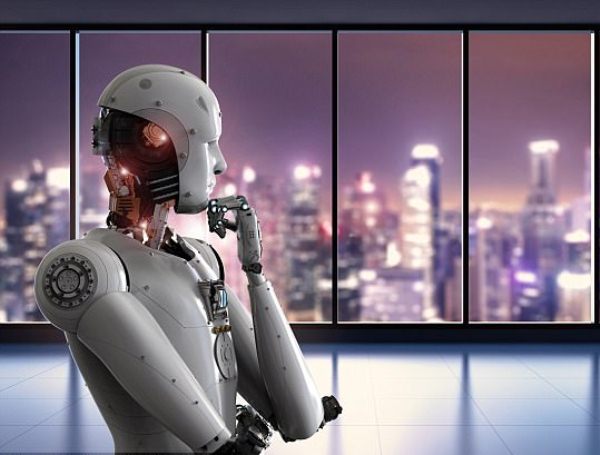The rise of robots in the workplace will trigger an ‘apocalypse’ unless it is managed properly, an economics professor has warned.
Johannes Moenius from the University of Redlands says mechanisation presents the most serious danger to unskilled workers employed in logistics and the service industry.
His comments follow a study from last year that found as many as 44 per cent of work hours could be done by machines by 2030.
According to an in-depth feature by Melanie Mason in the Los Angeles Times, automation is shaping the job market like never before.
‘We’re facing a major challenge… If we don’t do anything, then it will turn into an apocalypse’, Professor Moenius said.
He believes successfully responding to this challenge could involve rethinking how people are educated, remaking labour laws or considering changes in social security, such as introducing a universal basic income.
Although local governments might not be able to control robots in the workplace they will have to deal with the outcome.
This will be one of the key challenges for policy makers over the coming years, says Professor Moenius.
According to the World Economic Forum, robots, AI and other forms of automation are set to drastically change the workplace within the next four years.
It predicts that globally 75 million jobs will be displaced by 2022.
According to Eloy Ortiz Oakley, chancellor of California’s community college system, mechanisation will ‘make or break California’.
‘If we don’t find a way to provide the skills and education and training necessary for the majority of Californians there’s going to be a lot more have-nots than we have today’, he said.
A report in November 2017 suggested that physical jobs in predictable environments, including machine-operators and fast-food workers, are the most likely to be replaced by robots.
Management consultancy firm McKinsey, based in New York, focused on the amount of jobs that would be lost to automation, and what professions were most at risk.
The report said collecting and processing data are two other categories of activities that increasingly can be done better and faster with machines.
This could displace large amounts of labour – for instance, in mortgages, paralegal work, accounting, and back-office transaction processing.
Earlier this year a report predicated that one in five jobs in British cities is likely to be displaced by 2030 because of automation and globalisation.
Retail, customer service and warehouse jobs are among those most at threat of being lost, said Centre for Cities.
The think tank said struggling cities in the North and Midlands were more exposed to job losses than wealthier cities in the South, compounding the North/South divide











19 thoughts on “Rise Of The Machine: Robots In The Workplace Will Trigger An ‘Apocalypse’ If We Don’t Do Anything, Professor Warns”